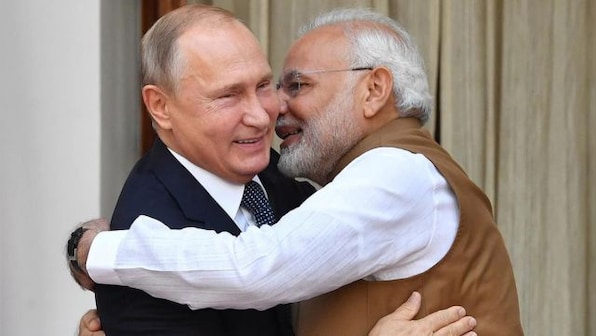
Prime Minister Narendra Modi’s recent visit to Russia for the Indo-Russia Conference has sparked significant interest and debate across international circles. The visit, marked by key meetings and strategic gestures, underscores India’s diplomatic efforts to maintain a delicate balance amidst global tensions. Here’s a detailed look at the highlights and implications of Modi’s engagements during his tour.
Meeting with President Putin
A centerpiece of Modi’s visit was his meeting with President Vladimir Putin of Russia. This meeting not only reaffirmed the longstanding friendship between the two nations but also sought to strengthen bilateral ties across various sectors. Discussions ranged from defense collaborations to energy partnerships, highlighting India’s strategic interests in the Eurasian region.
Promoting Anti-War Message and Non-Alignment Movement
In a notable move, Prime Minister Modi delivered a strong anti-war message, advocating for peaceful resolutions to global conflicts. He also reiterated India’s commitment to the principles of non-alignment, a cornerstone of Indian foreign policy since independence. By championing these values on a global stage, Modi aimed to position India as a voice of reason and stability amidst escalating global tensions.
Diverse Perspectives on Modi’s Intentions
While some observers speculate that Modi’s emphasis on non-alignment and anti-war sentiments aims to appease Western powers, others believe his motives run deeper. Critics, including Congress leader Jayram Ramesh, have suggested that Modi seeks to establish himself as a global leader akin to historical figures like Jawaharlal Nehru, known for their efforts in promoting global peace and cooperation.
Economic and Strategic Agreements
During his visit, Modi expressed gratitude to President Putin for facilitating India’s import of unrefined oil, underscoring the economic aspects of the Indo-Russian relationship. Additionally, discussions on defense cooperation and technological partnerships further solidified the strategic dimensions of the bilateral ties.
Geopolitical Reactions and Criticism
Notably, Ukrainian President Zelensky’s remarks on Modi’s warm embrace of President Putin sparked controversy. Zelensky’s criticism, highlighting the complexities of global diplomacy in the current geopolitical landscape, echoed sentiments from Western capitals wary of India’s closeness to Russia amidst global sanctions.
Conclusion
Prime Minister Narendra Modi’s visit to Russia for the Indo-Russia Conference has proven to be a pivotal moment in India’s foreign policy calculus. Through a nuanced approach blending diplomatic gestures with strategic interests, Modi aims to navigate the complexities of global geopolitics while asserting India’s role as a responsible global actor. As debates continue on the implications of his actions, one thing remains clear: India’s diplomatic tightrope walk between East and West will continue to shape its foreign policy trajectory in the coming years.
Read more: https://thelocaljournalist.com/modis-diplomatic-journey-to-russia-for-the-indo-russia-conference/
